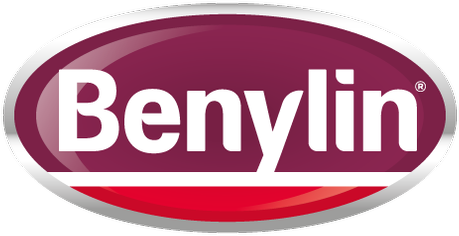Pelargonium sidoides – sometimes known as geranium1 – is a type of plant indigenous to South Africa1. It’s used by the native populations of South Africa to treat common conditions like sore throats and colds1.
Read on to learn more about what pelargonium is and its history. We’ll also look at herbal medicines more closely, and why people might use them.
In this guide:
1 - https://www.webmd.com/vitamins/ai/ingredientmono-1135/pelargonium-sidoides (Page 1)
1 - https://www.webmd.com/vitamins/ai/ingredientmono-1135/pelargonium-sidoides (Page 1)
1 - https://www.webmd.com/vitamins/ai/ingredientmono-1135/pelargonium-sidoides (Page 1)
What is pelargonium?
Pelargonium sidoides is a plant that is used as medicine by native populations of South Africa1. It’s often used as an aid for common cold symptoms, like a sore throat1.
In terms of its appearance, pelargonium is a rosette-like plant with long stalked leaves that are heart shaped and lightly scented2.
The plant also carries distinctive red/purple-coloured flowers that bloom in summer2. While pelargonium sidoides is sometimes called geranium, it’s important not to confuse it with rose geranium oil or spotted geranium1. These are completely different things1.
1 - https://www.webmd.com/vitamins/ai/ingredientmono-1135/pelargonium-sidoides (Page 1)
1 - https://www.webmd.com/vitamins/ai/ingredientmono-1135/pelargonium-sidoides (Page 1)
2 - https://bhma.info/indications/coughs-colds-flu/pelargonium/ (Page 1)
2 - https://bhma.info/indications/coughs-colds-flu/pelargonium/ (Page 1)
1 - https://www.webmd.com/vitamins/ai/ingredientmono-1135/pelargonium-sidoides (Page 1)
1 - https://www.webmd.com/vitamins/ai/ingredientmono-1135/pelargonium-sidoides (Page 1)
A brief history of pelargonium medicine
Pelargonium has been long used by civilisations such as the Zulu people2. It first started being used in the UK after Englishman Charles Stevens learned of it in the 1890s upon visiting South Africa2.
After consulting with a tribal healer and trying pelargonium, he brought the medicine back to England, where it was dupped ‘Steven’s consumption cure’2.
Over time, however, it was eventually replaced with other drugs2. That said, some people still use pelargonium today to help treat coughs and sore throats1.
Why people use herbal medicines
Herbal medicines are made from plant parts, like leaves, roots and flowers3. There is a long history to herbal medicines, and while the development of drugs has revolutionised health care in most parts of the world, many developing countries still use herbal medicines for their primary source of care4.
People may choose to use herbal medicines over traditional medicine as they align more closely with their treatment preferences4. Sometimes, herbal medicines can also be a more affordable option than traditional medicine4.
While herbal medicines are made from plant parts, the same level of care and respect should be taken with them as conventional medicines3. Just like regular medicine, they can have an effect on the body, which can be potentially harmful if not used correctly3. They can also react with other medicines and trigger unexpected side effects3.
Another thing that is important to check in advance is the product packaging of the herbal medication, to see if it has a traditional herbal registration (THR) mark. This indicates that the medicine is compliant with strict quality standards3. Also, be sure to check the packaging guidance on how much and when to use any herbal medicine you are considering taking3.
THRs are intended for conditions that can be self-medicated, where medical supervision is not necessary. This can include coughs and colds3 – read more here .
4 - https://www.ncbi.nlm.nih.gov/books/NBK92773/ (Page 1)
4 - https://www.ncbi.nlm.nih.gov/books/NBK92773/ (Page 1)
4 - https://www.ncbi.nlm.nih.gov/books/NBK92773/ (Page 1)
3 - https://www.nhs.uk/conditions/herbal-medicines/ (Page 1)
3 - https://www.nhs.uk/conditions/herbal-medicines/ (Page 1)
3 - https://www.nhs.uk/conditions/herbal-medicines/ (Page 1)
3 - https://www.nhs.uk/conditions/herbal-medicines/ (Page 2)
3 - https://www.nhs.uk/conditions/herbal-medicines/ (Page 2)
3 - https://www.nhs.uk/conditions/herbal-medicines/ (Page 2)
BENYLIN® Herbal Cough & Cold Sugar Free Syrup
BENYLIN® Herbal Cough & Cold Sugar Free Syrup is based on naturally derived pelargonium root dry extract.
It can be used to help relieve symptoms such as chesty coughs, runny noses and sore throats linked with common colds.
Looking for more cough relief products? Check out the BENYLIN® cough relief range for adults.
